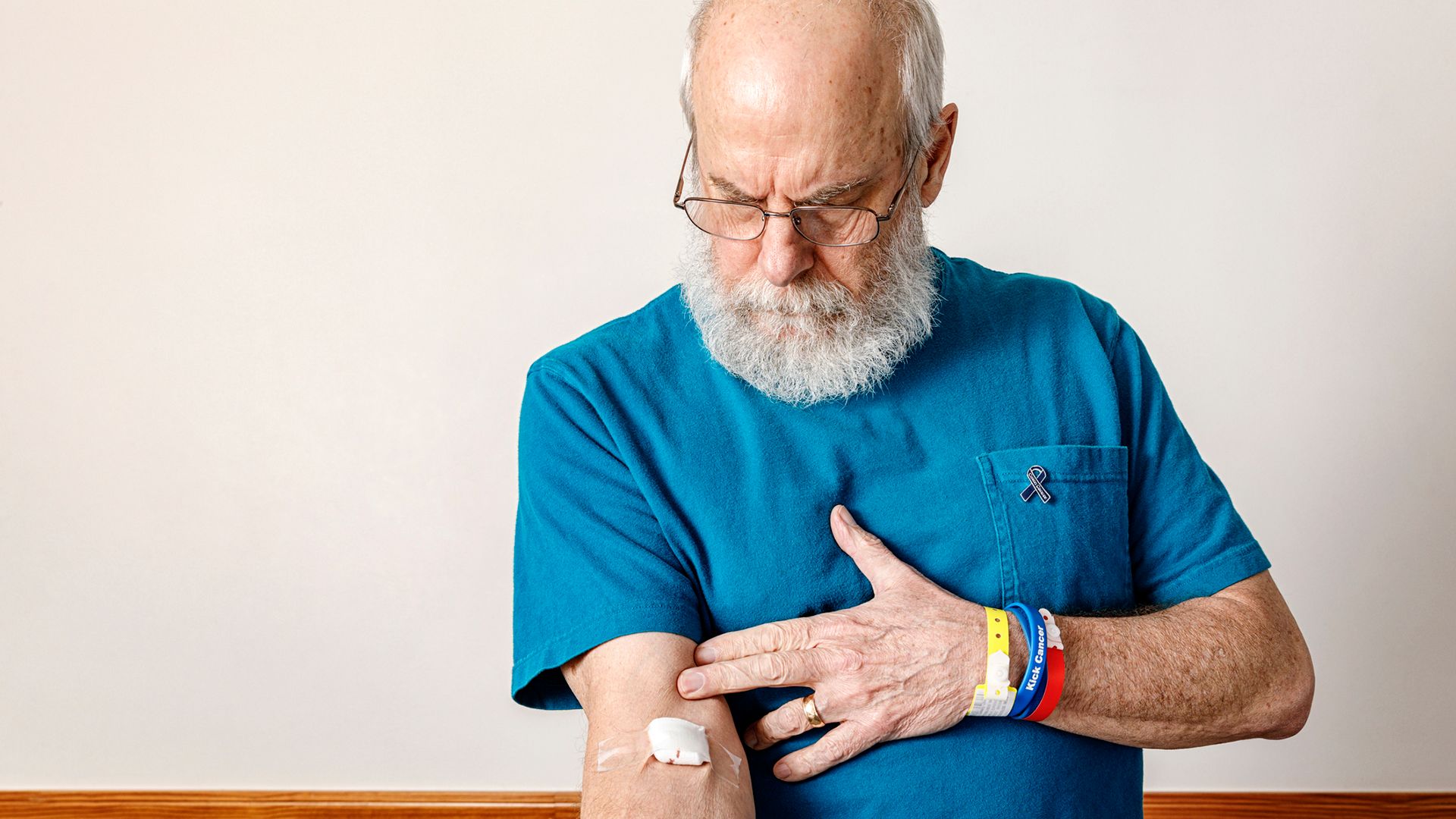Cancer is a different experience for everyone, but nearly everyone living with cancer will find the illness affects their mental health and quality of life in some way.
A cancer diagnosis can cause fear, anger, sadness, and many other emotions. Living with cancer means living with some degree of uncertainty, including distress and anxiety about treatment, progression, and finances. Cancer affects relationships with friends, family, and intimate partners. It affects how a person feels about themselves when it causes physical changes, fatigue, and limits the ability to do activities that were once normal. Many people with cancer experience mental health disorders like depression and anxiety.
Prioritize your mental health
If you are living with cancer, it’s important to take steps to take care of your mental health. Here are some ideas to help you get started:
- Build your support network. Cancer is not something you need to face alone. Talk to your friends and loved ones about what you are experiencing and ask for help. Help can be everything from someone to assist you with meals when you are too tired from treatment, to a friend who listens when you need to talk.
- Participate in a support group. Search for support groups in your area or ask your healthcare providers if they can recommend a support group.
- Talk to a counselor. Also consider working with an oncology social worker or other counselor who specializes in helping people who are living with cancer.
- Eat a healthy diet. People living with cancer have different nutritional needs. Talk to your healthcare providers about what foods you should eat. Tell your healthcare providers if you have difficulty eating.
- Exercise. Even a small amount of activity can help your mood, energy, and other parts of your health. Ask your healthcare providers what exercise is safe and how much exercise is safe.
- Manage stress. Stress is often part of the experience of living with cancer. Stress is also harmful to physical and mental health. Consider trying meditation, breathing exercises, listening to relaxing music, or other activities to reduce stress. Think about other stressful times in your life and the coping strategies that helped you during those times.
- Prioritize what’s important. Make time for the things that make you happy and give your life purpose. This might be spending time with friends and family. It may be a creative pursuit or hobby. It may also be something simple, like going to a movie or visiting your favorite coffee shop.
- Learn about cancer and cancer treatment. Understanding your diagnosis and treatment options can help you feel more in control and help you make decisions when you need to. Your healthcare team will be your best source of information and you can ask your healthcare providers for suggestions on where to learn more.
Good communication with your healthcare providers is also important. Be honest and discuss what you are experiencing, your concerns, and how you feel. Treating the cancer is only part of a treatment plan. A good treatment plan also addresses the many challenges of living with cancer and helps improve your quality of life.






